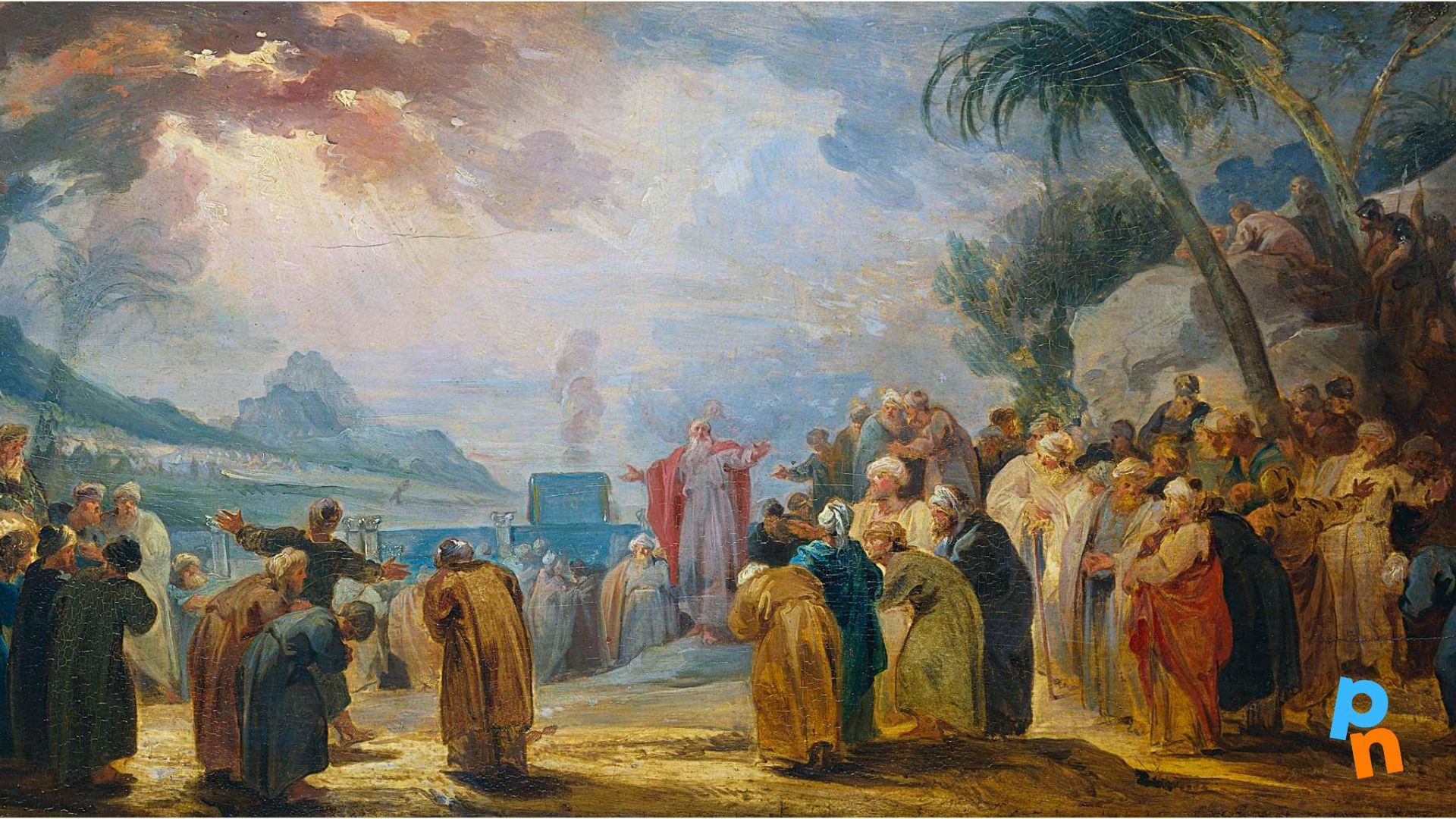Descending the Mountain

I’m reading a book called Naming God by Janet Soskice with my brother right now. We’re reading a chapter at a time and then getting together over video chat to talk about it and share our reflections. I’ve been loving it. One of the first chapters we read is called ‘Naming God at Sinai.’ It zooms in on Exodus 3 and the self-naming of God to Moses from a burning bush in the desert. It is here that God introduces himself to Moses, and the Israelite people, as Yahweh, saying “I AM WHO I AM. [...] Say to the Israelites, ‘I AM has sent me to you.’” If you’re familiar with scripture, you are doubtless familiar with this moment. It is inextricably situated within foundational Jewish and Christian lore.
The encounter between God and Moses is very personal. Consider Moses’s familial and cultural origin story. Consider his reason for fleeing Egypt into the wilderness after killing an Egyptian slavedriver. Then, the God of the universe calls Moses by name, introduces Himself to Moses, and includes Moses in His plans to free the Israelite people. Yahweh gives Moses a part to play.
I can only imagine the significance of this moment for Moses.
Soskice, however, emphasises the simultaneously collectivistic nature of this encounter.
God is not only introducing himself to Moses; He is reintroducing Himself to the Israelite people through Moses, in response to their cries for help. He has plans for them as a people.
This encounter is part of a mosaic of story that began with Abram in Genesis 15 and continues today.
Later, with reference to the giving of the Ten Commandments to Moses, Soskice writes that “Moses ascends in the darkness of God, but he descends to his people with the Law.” Another of Moses’s wildly individual encounters with God yields instructional and lasting words of life for His people. She concludes from this that “[f]ollowing God, as in the book of Exodus, is not a private fancy but a communal spiritual journey.”
In the cultures that formed both my brother and I as young people (particularly Southern California) and in the culture I’m writing from now (Adelaide, SA), there is a high value placed on the individual’s experience of God in the Christian life. And I treasure all of the ways that God has made Himself known to me, intimately and personally. But there is something to be learned here in this interplay of encounter between Moses, YAHWEH, and the people of Israel.
Our individual encounters with God, while meaningful to us in very particular ways, have the capacity to impact our communities. And, taking this further, this may actually be a significant part of their purpose–not just for your own sake, but also for the sake of others.
I think about the Parable of the Talents in Matthew 25, where readers are challenged to consider their practices around investment and stewardship. Is not our experience of God and the fruit of our encounters with Him something to also invest and steward well?
How might we be robbing others and ourselves of tapestral creativity, engagement, and substance when we bury and hoard our sacred encounters with Yahweh?
Conversely, what would it look like for you to descend the mountain of God, taking the things He’s given you, and share them with your people?
I want to encourage you to wonder about this with God. Not with shame or with fear. (Moses also carried both of those.) But with curiosity, expectation and boldness.
Because just as God promised to be with Moses, so He is with us.
Connect with us

Who we are
Get in touch
-
Adelaide, SA, Australia
-
admin@projectnexus.org.au
ABN: 69 453 772 767
Incorporation Number: A44682

